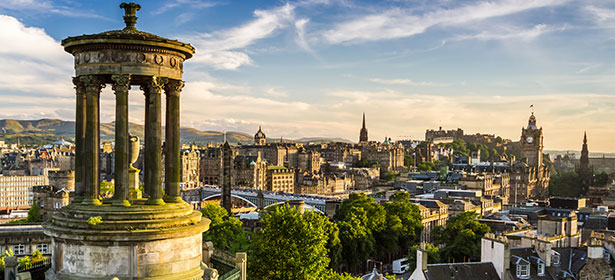Council tax in Scotland to be frozen - what you need to know

Council tax in Scotland will be frozen at current levels until April 2025, First Minister Humza Yousaf has announced. It means households won't see bills rise for almost two years.
The plan will be a welcome relief to millions of Scottish residents who saw council tax rates hiked by at least 5% in 2023-24.
Here, Which? takes a closer look at what the freeze means for taxpayers, with advice on what you can do to reduce your council tax bills.
Why has Scotland frozen rates?
Homeowners were hit with large council tax rises in April, with data for Scotland showing that most local authorities increased bills by at least 5%. Unlike in England and Wales, Scotland didn't set a cap on rate increases this financial year, so some councils were able to raise council tax by even more.
The Scottish government's decision to freeze council tax, however, means rates for around 2.5 million households will stay the same in 2024-25.
First Minister Humza Yousaf says the announcement will bring 'much needed financial relief' to Scottish taxpayers struggling with soaring prices and the ongoing cost of living crisis.
- Find out more: use our council tax calculator to find out what your bill will be until April 2025
Support for council tax hike on second homes
It's not currently clear how the new rate freeze will affect proposals to double council tax for second homes from April 2024, but there appears to be public support for the idea.
The results of a 12-week consultation launched in the spring showed 55% of the 938 respondents backed charging twice the rate on second and empty properties. While 59% supported a 300% council tax premium on second homes, saying it would discourage people from buying properties that won't be used regularly by owners.
In September 2022, around 1% of all residential properties in Scotland (over 24,000 homes) were classified as a second home for council tax purposes. Respondents believed second homes are partly responsible for driving up the cost of buying or renting.
If approved by Holyrood, the Scottish government hopes the plans will increase the amount of affordable homes.
How to reduce your council tax bill
Despite Scotland's announcement to freeze council tax rates until 2025, most people across the UK are already feeling the impact of hefty rate hikes that came in from April.
There are some ways you can reduce your bill:
Make a challenge
Council tax is calculated using a system of bands that are based on the value of your property in April 1991 if it's in England or Scotland, or April 2003 if it's in Wales. Northern Ireland uses the old system of ‘domestic rates’ which is based on the capital value of a property.
It's possible, however, that you may have been placed in the wrong band and therefore paying too much council tax. If that's the case, then it's possible to make a challenge to the Valuation Office Agency (VOA) or Scottish Assessors Association (SAA).
VOA data from 2022-23 showed one in three households successfully had their property moved to a lower council tax band, cutting their bills and likely getting a refund for the money they'd overpaid.
Bear in mind, however, that a change to the valuation of your home could also push you into a higher tax band.
- Find out more: use our step-by-step advice on how to successfully challenge your council tax band.
Check if you can get a 25% discount
If you live alone, or with someone who isn't counted as having to pay council tax, you could get a 25% discount. Those who are disregarded for council tax include student nurses, full-time students, those under the age of 25 in approved training and members of visiting forces.
These discounts are not applied automatically. If you think you're eligible, you must make an application for the discount and you'll usually have to provide proof.
- Find out more: use our guide for more ideas on how to get a council tax reduction or listen to the Which? Money podcast episode how to save money on your council tax bill


